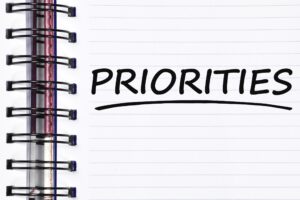Looking to reduce food waste and save cash? Opting for foods with longer shelf lives is a wise move. In this article, you’ll discover 13 pantry staples that not only fit the bill but also have the fantastic ability to last a long time. From the secrets to their longevity to how they can be used in various recipes, these essentials are perfect for anyone looking to be prepared for any situation. So, without further ado, let’s dive in and start stocking up!
1. Honey: The Eternal Sweetener
Honey is famous for its indefinite shelf life. Archaeologists have found pots of honey in ancient Egyptian tombs that were still preserved after thousands of years. The natural sugars and low moisture content in honey prevent the growth of microbes, ensuring it remains safe and tasty indefinitely. Always store honey in airtight containers to maintain its quality.
2. Rice: The Versatile Staple
Please keep in mind the following information:
Different types of rice, such as white, wild, jasmine, and basmati, have long shelf lives, often lasting up to 30 years when stored properly. It’s important to store rice in a cool, dry place away from sunlight. You can either freeze rice or store it in air-tight containers to maintain its quality for 30 years. Rice is not only a versatile ingredient but also serves as the base for numerous dishes across various cuisines.
3. Dried Beans: A Nutritious Choice
Dried beans can last up to 30 years in proper storage conditions. They are a powerhouse of nutrition. They provide essential proteins, vitamins, and minerals. Beans expand and soften when cooked, making them a hearty addition to any meal.
4. Pasta: Easy to Store, Easy to Cook
Dry pasta can last up to two years in your pantry due to its lack of moisture, which prevents spoilage. This pantry staple is a versatile ingredient. It can be paired with a wide variety of sauces and ingredients to create quick and easy meal options. Whether you prefer a classic marinara or a creamy alfredo, pasta is a versatile and convenient choice for any meal.
5. Canned Tuna: Protein-Packed and Preserved
Canned tuna has a shelf life of 2-5 years. It is a great source of protein and essential omega-3 fatty acids. The canning process, which involves sealing the tuna in an airtight container and heat sterilizing it, ensures it remains fresh and safe to eat for years. Its a favorite go-to of mine.
6. Salt: More Than Just Seasoning
Salt is a household staple. It essentially has an unlimited shelf life due to its mineral nature. It’s not only crucial for flavoring but also plays a significant role in preserving other foods. Salt inhibits the growth of bacteria by drawing moisture out of cells, making it an indispensable pantry item.
7. Sugar: Sweet and Stable
Sugar, similar to salt, has an indefinite shelf life if stored in a dry environment and kept free from contaminants. Its preservation capabilities are akin to those of honey. The high sugar content prevents the growth of harmful microbes. This makes it a reliable pantry staple for long-term storage.
8. Pure Vanilla Extract: Flavorful Forever
Pure vanilla extract is made by dissolving vanilla beans in alcohol. As such, it has an endless shelf life. Its alcohol base serves as a natural preservative. this makes it a perpetual addition to your baking supplies.
9. Cornstarch: For Thickening and Beyond
Cornstarch is a versatile kitchen ingredient that can be stored indefinitely in a cool, dry place. It is widely used as a thickening agent in cooking and baking. It can also add texture and smoothness to a variety of dishes. This essential pantry item is a must-have for any home cook.
10. Hard Liquor: Cheers to Longevity
Distilled spirits such as vodka, rum, and whiskey have an indefinite shelf life. This is due to their high alcohol content. It effectively prevents bacterial growth and ensures the preservation of the liquor over time. The high proof of these spirits makes them resistant to spoilage, allowing them to be stored for extended periods without compromising their quality.
11. Maple Syrup: Naturally Long-Lasting
When unopened, maple syrup can last indefinitely. Its high sugar content prevents spoilage. However, once opened, it should be refrigerated to maintain its quality and prevent mold growth. It’s important to keep the lid tightly sealed to prevent moisture from getting in and affecting the syrup. Storing it in the refrigerator will help preserve the flavor and consistency of the syrup for a longer period.
12. Soy Sauce: Aged to Perfection
After opening a bottle of soy sauce, it’s important to refrigerate it to maintain its flavor and quality. This is because exposure to air and light can cause the soy sauce to deteriorate more quickly. Despite its high salt content, an opened bottle of soy sauce can last for about one year when stored in the refrigerator. If left unopened, it can last up to 3 years.
13. Apple Cider Vinegar: Versatile and Durable
Apple cider vinegar has an incredibly long shelf life. this is because of its high acidity, which makes it resistant to spoilage. It is not just a common ingredient in the kitchen, but also renowned for its numerous health benefits. These include its ability to aid in digestion, help regulate blood sugar levels, and improve skin health when used in skincare routines.
Keep Your Pantry Prepared and Your Budget Happy!
Understanding which foods have long shelf lives is important for better pantry management and for living a more sustainable lifestyle. It helps minimize waste and maximize budget efficiency. By including these 13 staples in your shopping routine, you can ensure that your kitchen is always stocked with versatile and durable ingredients. A well-prepared pantry is the secret to both peace of mind and culinary creativity.
Read More
4 Meals from the Pantry to Save Money
Grocery Shopping Secrets: Top 10 Best Bargains at Trader Joe’s








































